There was once a time when Marx was simply read; nowadays, he is imposed. He is not merely a trend: the vast majority of all that is published in the ideological domain today is located inside the scope of Marxism, and fashion no longer focuses on anyone but those authors who, in relation to Marx, introduce a number of personal variations. Sometimes it is Lukács,1 at others Rosa Luxemburg,2 then again Wilhelm Reich.
Recently, it was Gramsci’s turn, and Gallimard published a first collection of his Political Writings covering the 1914–1920 period.
Antonio Gramsci is, alongside Lukács, the most renowned ‘independent Marxist-Leninist’ of the Stalinist period. He is, above all else, the theoretician of ‘cultural power’.
Gramsci was born in Sardinia in 1891. A Don Bosco-like legend has turned him into a shepherd’s son. In actual fact, his father was an official. At the age of three, following a fall in a stairwell, he suffers spinal column deformation, leaving him hunchbacked for the rest of his days. At the age of seventeen, a scholarship allows him to enter university. He arrives in Torino in 1911. Two years later, he joins the Italian Socialist Party (PSI), immediately becoming a militant in the ‘Left wing’. He also contributes to the writings of the Avanti! daily and the Grido del popolo weekly.
On 1st May, 1911, he launches the Ordine nuovo weekly, in collaboration with Terracini3 and Palmiro Togliatti.4
At the time, the communist world was in a state of complete turmoil. Beginning in 1918, certain currents declared themselves in favour of a ‘critical support’ of Russian Bolshevism. These currents refused to accept the hegemony of the Komintern (the Communist International) without questioning. In Germany, this was the case of the groups which would go on to form the KAPD (Communist Workers’ Party of Germany) in 1920, together with Rosa Luxemburg and Karl Korsch.5 The same applied to Pannekoek’s6 ‘councilists’ in the Netherlands. Their opposition particularly impacted parliamentary action, which they considered inadequate for the purpose of socialist struggle, and the role of syndicates, whose revolutionary virtues they questioned.
This position, which would thereafter be adopted by numerous leftist movements, is denounced by Lenin in ‘Left-Wing’ Communism: An Infantile Disorder.
In Italy, within the PSI, two ‘Left-wing’ groups clash: one is led by Amadeo Bordiga,7 the other by Gramsci.
[…]The syndicate’s purpose, Gramsci writes, ‘is one that could be labelled commercial’: it consists in ‘enhancing the work of a certain category of workers within the bourgeois market’, which bears no connection to revolution. As for the ‘party’s religion’, which is connected to bureaucratism and elitism, it is expressed through the ‘desire to cultivate the apparatus for the latter’s own sake’ (Notes on Machiavelli). The conclusion? Both the party and the syndicate could act as the agents of the revolution but could never be its privileged forms, which would then come to merge with it.
With his pronounced features, large nose, black hair and lorgnette, Gramsci participates in all congresses. That is when he enunciates his famous watchword: ‘Only the truth is revolutionary’.
In parallel, he elaborates a theory of ‘factory councilism’, whose central idea states that the proletariat must establish its dictatorship by means of organisms that are spontaneously created within it. The crucial word here is ‘spontaneously’, implying a return to square one.
Bordiguists and ‘Social Traitors’
Gramsci thus turns his attention to the ‘factory councils’ in which a synthesis is supposed to take place between the economic infrastructure and the political superstructure: during the first phase of the communist society, the global proletarian state will be born of the coalition of factory and countryside councils, giving rise to ‘direct democracy’. He writes:
Factory commissioners are the sole true social (economic and political) representatives of the working class, since they are elected through universal suffrage by all the workers, on the very working premises.
In April and September 1920, an immense strike action shakes the North of Italy. It is quite an event:
For the first time in history, the proletariat is initiating a struggle for the control of production without having been driven to action by either hunger or unemployment. (Ordine nuovo, 14th March, 1921)
In Torino, Gramsci is in charge of all corporate soviets. He says:
Every factory is an illegal state, a proletarian republic that lives from day to day!
Very soon, however, the enthusiasm decreases. The PSI’s right wing ‘breaks’ the movement and social democracy loses ground. Furthermore, the decision made by Lenin to accelerate the communist scissions within socialist parties hastens things further. On 21st January, 1921, in Livorno, the PSI’s ‘communist faction’ becomes the Italian Communist Party. Although both Gramsci and Togliatti participate in its creation, it is ultimately Bordiga that takes control of it thanks to his superior organisation.
In January 1926, the Italian Communist party holds a congress in Lyons, France. Gramsci succeeds in imposing his theories and becomes its Secretary General. By then, however, it is already too late: cut off from its voters and exhausted by internecine conflicts, the party is prohibited on the 8th of November and goes into hiding. Gramsci is arrested, transferred to the island of Utica, and sentenced to twenty years’ imprisonment.
It is there, in his cell, that he writes his most important texts: The Prison Notebooks, divided into thirty-three leaflets and 3000 handwritten pages.
Free from the contingencies of action, Gramsci rethinks the entire praxis of Marxism-Leninism. He particularly reflects on the great socialist setback of the 1920s: How is it possible that the awareness of men is ‘late’ compared to what their class situation is expected to dictate upon them? How do dominant castes ‘naturally’ ensure the obedience of the dominated classes? Gramsci answers all these questions by having a closer look at the notion of ideology and making a decisive distinction between ‘political society’ and ‘civil society’.
The Theory of Cultural Power
Gramsci uses the expression ‘civil society’ (a term used by Hegel8 yet criticised by Marx) to designate the whole of the ‘private’ sector, meaning its system of needs, jurisdiction, administration, and corporations, but also the intellectual, religious and moral domains.
The mistake that had been made by the communists lay in their belief that the state was no more than a simple political apparatus. However, the state ‘also organises consent’, which means that it manages things by means of an implicit ideology, one that is founded upon values espoused by most members of society. This ‘civil’ apparatus comprises culture, ideas, habits and traditions, stretching all the way to ‘common sense’.
In other words, the state is not a mere apparatus of coercion. Alongside direct domination and the authority it exercises by means of political power, it also benefits from ideological ‘hegemony’ and people’s mental adherence to a worldview that consolidates it and justifies it, both of which stem from its activities of cultural power (see also the distinction made by Althusser between ‘the state’s repressive apparatus’ and ‘the state’s ideological apparatuses’).
Distancing himself from Marx, who reduced ‘civil society’ to its economic infrastructure alone, Gramsci realises perfectly that it is within this very civil society that worldviews, philosophies, religions and all implicit or explicit intellectual and spiritual activities are elaborated and disseminated, thus enabling the creation and perpetuation of social consensus (he failed to see, however, that ideology is also connected to mentalities, that is to the mental structure of each given people). Reintegrating civil society into the level of superstructure and associating it with ideology, upon which it indeed depends, he henceforth differentiates two forms of superstructure in the Western world: on the one hand, civil society and, on the other, the political society or the state per se.
Whereas in the East the state is everything and the civil society is both ‘primitive and gelatinous’, the communists of the West must remain aware of the fact that the ‘civil’ aspect is an addition to the ‘political’. If Lenin, who did not realise this, succeeded in seizing power, it is because in Russia, the civil society was inexistent. In developed societies, no claiming of political power is possible without a prior seizure of cultural power:
A seizure of power does not solely occur through a political insurrection that takes charge of the state but also through a long ideological activity within the civil society that allows one to lay the necessary foundations. (Hélène Védrine,9 Les philosophies de l’histoire.10 Payot, 1975)
The ‘shift to socialism’ is channelled neither through a putsch nor through direct confrontation but, instead, through the subversion of minds.
The central issue in this war of position is culture, which acts as the command post of values and ideas.
Gramsci thus simultaneously rejects traditional Leninism (the theory of revolutionary confrontation), Stalinist revisionism (the strategy of the Popular Front) and Kautsky’s11 theories (the establishment of a vast workers’ assembly). Both instead of ‘party work’ and in parallel to it, he suggests replacing ‘bourgeois hegemony’ with ‘cultural proletarian hegemony’, right under the noses of the established authorities. Overcome with values that are no longer its own, the existing society will thus be shaken at its very foundations and all that one will have to do is exploit the situation in the political field.
Hence the role assigned to intellectuals: ‘to win the cultural war’. Here, the intellectual is defined by the function he exercises in relation to a given type of society or production. Gramsci writes:
Every social group born on the primary field of an essential function within the world of economic production organically creates, at the same time, one or several layers of intellectuals that bestow upon it homogeneity and awareness of its own function not only in the economic domain, but also in the social and political one. (Intellectuals and Cultural Organisation)
Using this (highly expanded) definition, Gramsci distinguishes between organic intellectuals, who ensure the ideological cohesion of a certain system, and traditional intellectuals, i.e. the ones representing the old social classes that persist through the disruption of production relations.
It is at the level of ‘organic intellectuals’ that Gramsci recreates the subject of history and politics — ‘the organising Nous of other social groups’, to use the expression coined by Mr Henri Lefebvre12 (La fin de l’histoire.13 Minuit, 1970). The subject is no longer the Prince nor the state, nor even the party, but the intellectual avant-garde connected to the working class. It is this avant-garde which, through ‘termite-like work’, fulfils a ‘class function’ by becoming the spokesperson of the groups represented in the forces of production.
It is also responsible for granting the proletariat the necessary ‘ideological homogeneity’ and awareness to ensure its hegemony — a concept which, with Gramsci, replaces and transcends that of ‘proletarian dictatorship’ (insofar as it stretches beyond the political and encompasses ideology).
Pluralism and Evanescent Consensus
In the process, Gramsci expands upon the means he deems appropriate for ‘permanent persuasion’: appealing to popular sensibility, a reversal of values at power level, the creation of ‘socialist heroes’, and the promotion of theatre performances, folklore and songs (when defining these objectives, what he draws inspiration from is the initial fascist experience and its first successes). Communism, he says, must resolve its own issues by taking the Soviet experience into account, but without attempting to passively follow this model. This leads him to highlight the specificity of national problematics. In his eyes, political action and strategy can neither afford to neglect the complexity of societies nor their temperament, mentalities, historical heritages, cultures, traditions, class relations (including their ideological aspects), etc.
Gramsci was very well aware of the fact that the post-fascist period would not be a socialist one. He did, however, think that the latter, once again dominated by liberalism, would represent an excellent opportunity to practice cultural subversion, because the proponents of socialism would, morally speaking, be in a position of power.
From this ‘democratic detour’ shall rise a new historical bloc managed by the working class, with traditional intellectuals either won over or destroyed. (When using the term ‘historical bloc’, a notion that was particularly based on a study of the situation pervading the Mezzogiorno, what Gramsci is actually referring to is a system of political alliances associating infrastructure and superstructure, centred around the proletariat and founded upon ‘history’, meaning upon classes and their structure within society.)
This vision of his has proved prophetic, not only because it is specifically in liberal regimes that subversion enjoys the greatest freedom of action but also because, being pluralistic, these regimes are characterised by a weak consensus that fosters the interference of intellectuals into political struggles. Mr Jean Baechler14 writes:
An evanescent consensus is what typifies the pluralistic type of order. Indeed, political pluralism, meaning the institutional acknowledgement of the legitimacy of divergent and competitive projects, is intrinsically a consensus corruptor. Under the sole impact of the mechanism of competition, the plurality of parties leads one to perceive ever more clearly the multiplicity and variability of the apportionments, institutions and values. If the worst comes to the worst, there is nothing that the members of such a society could unanimously agree on. (Qu’est-ce que l’idéologie?15 Gallimard, 1976)
We thus find ourselves in a vicious circle. The activities of the intellectuals contribute to the destruction of the general consensus, with the dissemination of subversive ideologies adding to the intrinsic flaws of pluralist regimes. Yet the more one reduces the consensus, the stronger the ideological demand (which the activities of intellectuals must then meet). The ideological majority thus finds itself inverted.
[…]References
1 TN: Born György Bernát Löwinger, György or Georg Lukács (13th April, 1885–4th June, 1971) was a Hungarian Marxist philosopher, aesthetician, literary historian, and critic.
2 TN: Rosa Luxemburg (5th March, 1871–15th January, 1919) was a Polish Marxist theorist, philosopher, economist, anti-war activist, and revolutionary socialist.
3 TN: An anti-fascistic politician.
4 TN: Togliatti was the leader of the Italian Communist Party.
5 TN: Karl Korsch (15th August, 1886–21st October, 1961) was a German Marxist theoretician.
6 TN: Antonie (Anton) Pannekoek (2nd January, 1873–28th April, 1960) was a Dutch astronomer, Marxist theorist, and social revolutionary. He was one of the main theorists of council communism (councilism).
7 TN: Amadeo Bordiga (13th June, 1889–23rd July, 1970) was an Italian Marxist, a contributor to Communist theory, the founder of the Communist Party of Italy, a leader of the Communist International and, at a later point, a leading figure of the International Communist Party.
8 TN: Georg Wilhelm Friedrich Hegel (27th August, 1770–14th November, 1831) was a German philosopher and a significant figure of German idealism.
9 TN: Born on 5th June, 1926, Hélène Védrine is a French philosopher.
10 TN: The Philosophies of History.
11 TN: Karl Johann Kautsky (16th October, 1854–17th October, 1938) was a Czech-Austrian philosopher, journalist, and Marxist theoretician.
12 TN: Henri Lefebvre (16th June, 1901–29th June, 1991) was a French Marxist philosopher and sociologist, best known for his pioneering of the critique of everyday life, his concepts of the ‘right to the city’ and the production of social space, and his work on dialectics and alienation. He targeted Stalinism, existentialism, and structuralism with rather sharp criticism.
13 TN: The End of History.
14 TN: Born on 28th March, 1937, Jean Baechler is a French sociologist.
15 TN: What Is Ideology?
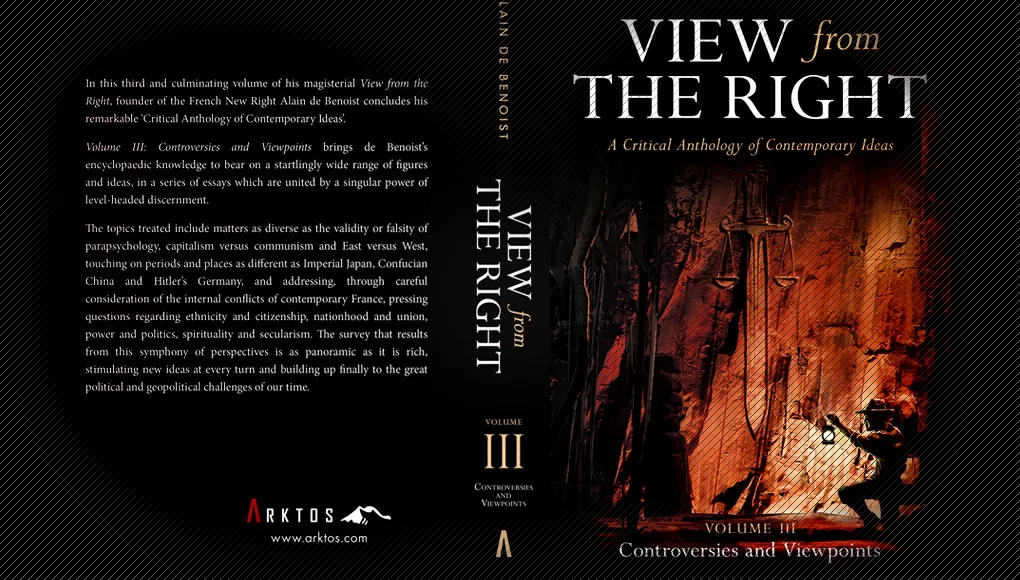


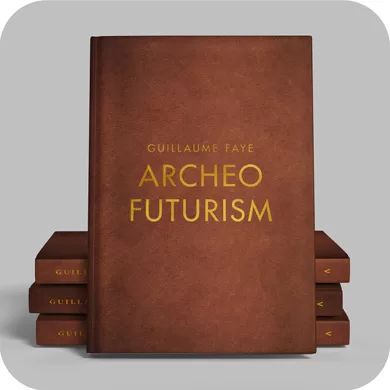
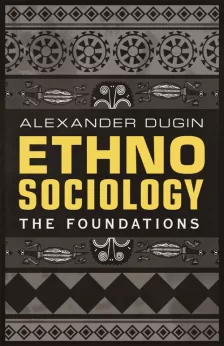

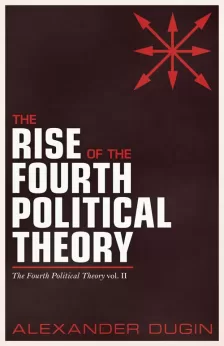

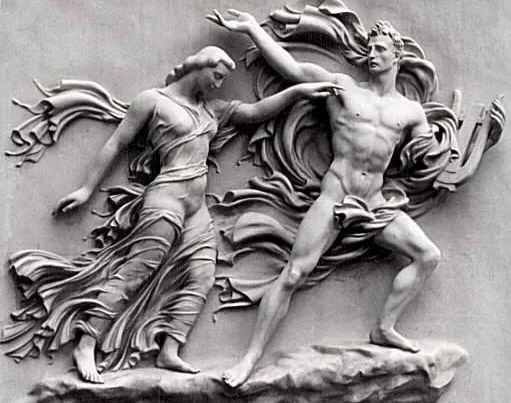
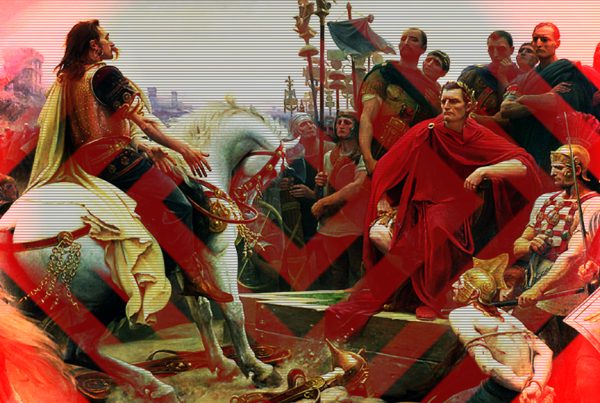
[…] Antonio Gramsci […]